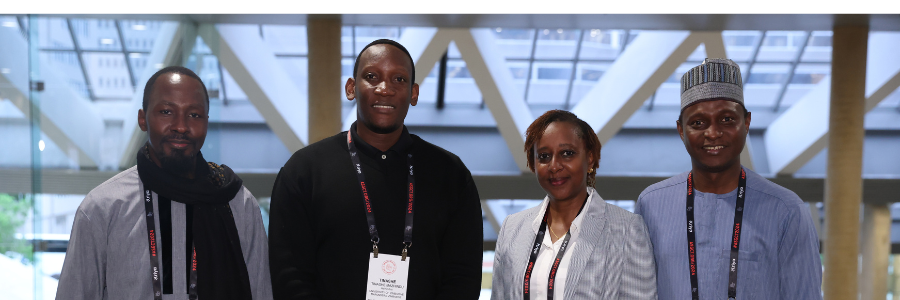First Time Attendee Experience at the Annual Meeting
Magdalena Lyimo, MD, MMed, PhD - July 11, 2024
In 2023, I completed the Global Gene Therapy Training course which is offered by ASGCT in collaboration with the Muhimbili University of Health and Allied Sciences, Tanzania.

I was fortunate to receive the ASGCT Global Outreach Travel Stipend to attend the 27th ASGCT Annual Meeting in Baltimore. As a first-time attendee, I was initially overwhelmed at how big it was, in terms of the number of attendees, distinguished scientists, technological advancements, and the number of sessions from which to choose.
In 2023, I completed the Global Gene Therapy Training course which is offered by ASGCT in collaboration with the Muhimbili University of Health and Allied Sciences, Tanzania. This is a four-week online course that is meant to raise global awareness of advances in cell and gene therapy. True to its word, at the end of the course I felt that I wanted and needed to learn more about how to be involved. And so, I became a member of ASGCT and was given the opportunity to attend the Annual Meeting.
It was reassuring to hear from my mentor, Dr. Rao (Chair – ASGCT Global Outreach Committee) that it was ok to feel overwhelmed and that despite this, there were many opportunities for inclusion of Tanzania and other LMICs. The symposium, “Collaboration Models for Global Gene Therapy” highlighted ongoing clinical trials and training programs in South Africa, India, and Tanzania. It was encouraging to hear about successful technology transfer between the US and Brazil and to learn about available treatments and cost-effectiveness studies for gene therapy in Sickle Cell Disease. The key element to success is strong partnerships and collaboration between institutions across continents.
There is a huge genetic diversity in Africa. Studies of patients with sickle cell disease in Tanzania have shown unique genetic variants in disease modifier genes that could be potential therapeutic targets. In addition, there are context-specific health system matters that need to be addressed through implementation research. Most importantly there is a need to build capacity and create a critical mass of global experts from LMICs who will be able to participate in and lead initiatives for inclusion in cell and gene therapy.
Once again, the end of the meeting leaves me feeling the need to do more, and to be more involved, and I hope that I can share an interesting story at a future ASGCT meeting.
Magdalena Lyimo, MD, MMed, PhD is the Head of the Department of Hematology and Blood Transfusion at Muhimbili University of Health and Allied Sciences in Tanzania.